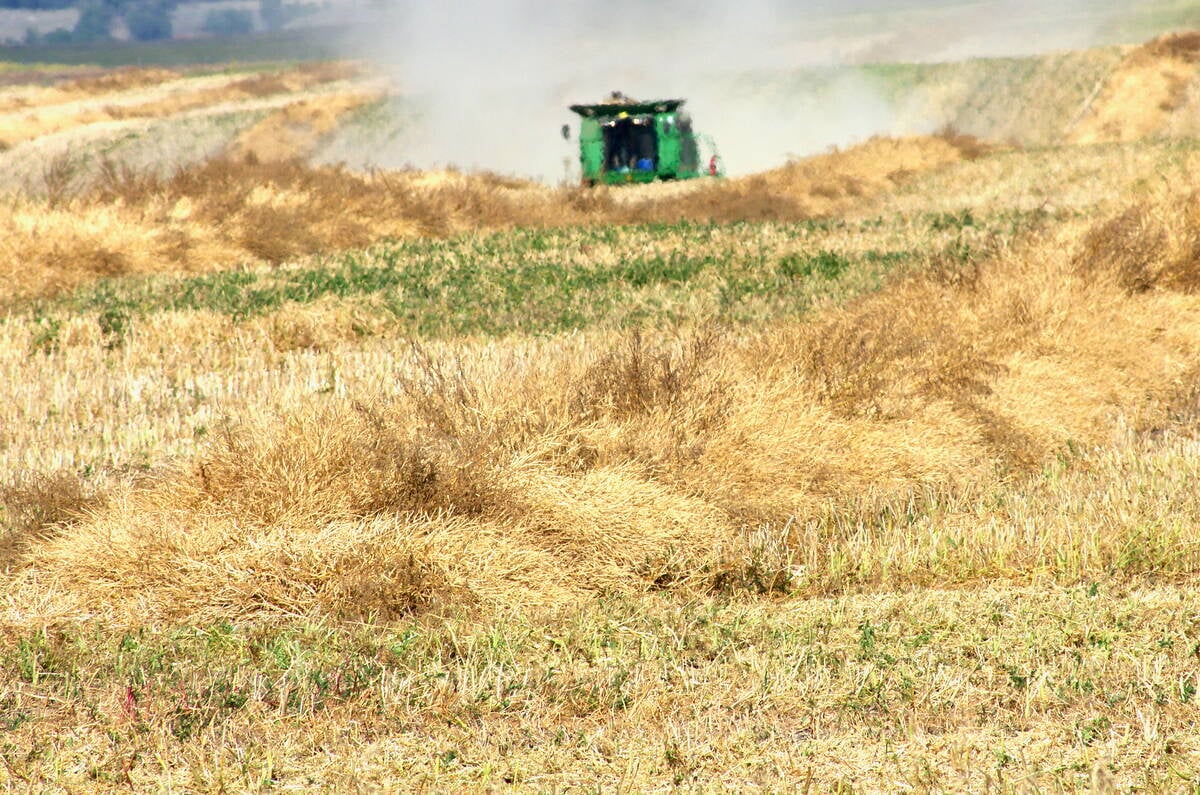WINNIPEG – Kevyn Nightingale looked like a cow on the wrong side of the pasture fence.
Clad in a navy suit, the young Torontonian struck up a conversation about the Canadian Wheat Board outside the Progressive Conservative party’s national convention in downtown Winnipeg last week.
“I don’t know much about agriculture policy,” he admitted, chowing down on syrup-soaked pancakes as a country band surrounded by hay bales picked out patriotic tunes.
“But I sure hope the wheat board dies.”
Nightingale was one of only a handful of people to reach a microphone and talk about farm policy in a workshop later that day. The party’s policy document contains just one brief mention of agriculture, calling for the removal of interprovincial trade barriers such as “marketing boards that reduce competitiveness.”
Read Also

Manitoba searches for Plan B on canola oil exports
A new report explores Manitoba’s current canola oil trade and possible alternative markets to the U.S.
Policy to forceful
Delegates from the riding of Calgary West wanted to remove the phrase. Sylvia Farrant explained farmers are divided on how best to market their products, and the statement could be too controversial for the party’s policy planks.
Nightingale’s statement was strong. “Marketing boards are pernicious vehicles that protect farmers, rich or poor, at the expense of consumers, rich or poor,” he said, adding that while delegates should support farmers who want to do their own marketing, consumers have more votes anyway.
In the end, the phrase remained, and was not discussed at the main policy-setting plenary session.
There were murmurs from people in the room who knew a thing or two about agricultural politics that some things are better left unsaid at such a closely watched conference.
To set itself apart from the Reform party, the Conservatives focused on all things national in the policies that will lead them into the next federal election.
When asked how he will battle Reformers in the West, leader Jean Charest told reporters his concerns are more federal in scope.
“In the end, the issue is, who understands the country, who is able to make it work? And that includes all the country: not just Quebec, not just the West,” Charest said.
Delegates who are farmers agreed national principles are more important than agricultural issues.
“If we don’t have a united nation, everything else is pretty much irrelevant,” said Ken Ritter of Kindersley, Sask.
“We don’t want to become a regionalized party by … making specific policies for specific regions,” added Albert Provost of Prince Albert, Sask. “We’ve already got that in the Bloc Quebecois and the Reform.”
Former agriculture minister Charlie Mayer said general economic and trade principles are more important for the party at this delicate stage.
“There may be some concern that we don’t have enough specifics on agriculture,” Mayer said. “But I think that will come during the campaign.”














